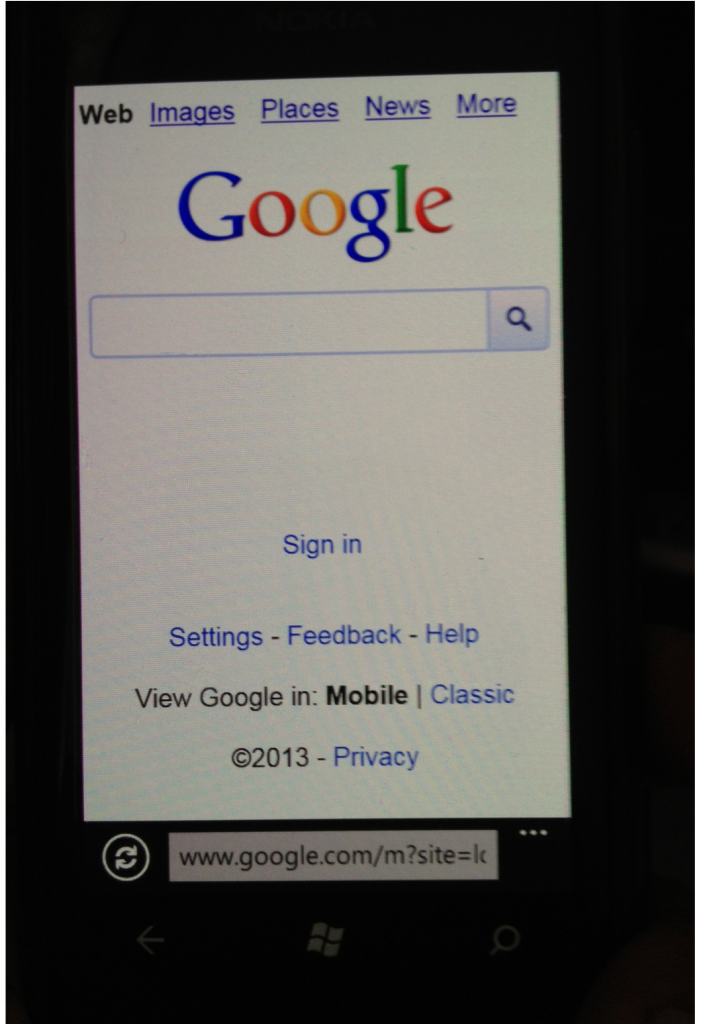Google Maps has never been officially available on Windows Phone, but users could always go to the Maps website on IE and it would work. Since yesterday, this is not the case. Windows Phone users are being redirected to google.com if they visit the Maps website.
Google has officially responded saying –
We periodically test Google Maps compatibility with mobile browsers to make sure we deliver the best experience for those users.
In our last test, IE mobile still did not offer a good maps experience with no ability to pan or zoom and perform basic map functionality. As a result, we chose to continue to redirect IE mobile users to Google.com where they could at least make local searches. The Firefox mobile browser did offer a somewhat better user experience and that’s why there is no redirect for those users.
Recent improvements to IE mobile and Google Maps now deliver a better experience and we are currently working to remove the redirect. We will continue to test Google Maps compatibility with other mobile browsers to ensure the best possible experience for users.
Here Google is trying to clear that Maps being not accessible on WP is not an anti-competitive practise by Google, rather it was a well thought-out product decision.
Is Google being evil?
This question is yet to be answered. First of all, Google hasn’t been playing well with Microsoft lately. They have removed Active Sync support from Gmail, restricted Microsoft from making a standalone YouTube client for WP (that’s the claim Microsoft makes) and lot more. Also, Microsoft will never stop making those hate ads on Google, like Gmail Man.
So when Google Maps started to redirect to google.com on WP devices, everyone thought this was just another plot by Google against Microsoft.
There’s been a lot of outrage by WP users saying that mobile website of Google Maps actually worked well before – this is opposite to Google is arguing.
At the end of the day, what matters is, whether Google Maps will work on WP devices in future. For which, the answer is yes.
Source: The Next Web

You must be logged in to post a comment.